Here’s a question about punctuation, with an answer about style.
Which of these is correctly punctuated?
I like oranges, apples, and bananas.
I like oranges, apples and bananas.
The answer is it depends on the style manual that you use.
In school, you were probably taught certain rules about punctuation, and your teachers told you that the rules were the “right” way to punctuate. There were no options, no other ways of working.
The reality is that punctuation conventions are just conventions that people agree upon. Two major style guides ar the Associated Press style guide, which is often used by newspapers, and the Chicago Manual of Style, often used by publishers. To make matters more complicated, often a publishing house will follow a “house style,” that is, they will decide that all of their books will follow certain punctuation rules.
In the example above, the AP style would add that last comma, but the Chicago style wouldn’t.
I like oranges, apples, and bananas. (AP Style)
I like oranges, apples and bananas. (Chicago Manual of Style)
When my first book was published by Grennwillow/Harpercollins, of course, it went through extensive editing. I was shocked and embarrassed by the red ink that came back to me on the edited manuscript. In truth, I didn’t do so badly. They were simply applying the house style to my story. Copyeditors use a style manual as they edit.
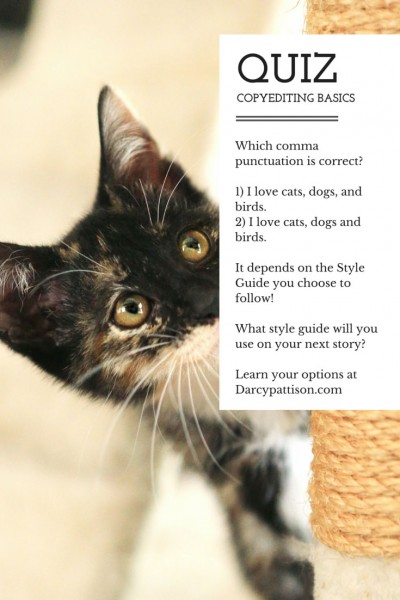
Copyedit According to Style
What does this mean for your story? Well, you have options.
First, you could just write the best story you know how, copyedit the best you know how–and then trust your publisher’s copyeditor to finish the process. It works.
Or, you could study one of the style manuals and stick with it strictly. For fiction, the best option is probably the Chicago Manual of Style. Learning a style guide down cold is technical stuff, and takes focus and an eye for detail; but it can be done.
If you’re self-publishing, you can still choose one way or the other; the difference is that you’ll be hiring the copyeditor and will tell them what style to use.
Personally, I’ll admit it: I don’t have an eye for detail necessary to be a good copyeditor. It would be painful for me to strictly follow a style manual. With each story, I learn more and more about things I should or shouldn’t do; however, I’ll never be perfect. Well, no one will be perfect–see this post on continuity goofs and other errors. But a good copyeditor can get your story pretty close to perfect. I let them do what they do best while I do what I do best, which is to tell a story.
Be very sure: that’s not a copout. I’m not ignoring the issue of punctuation. Writers should take it seriously and know the basics and know when and how they can stretch the punctuation. One of my favorite books for learning basic punctuation is The Art of Styling Sentences: 20 Patterns for Success. Grab a friend and learn a new sentence pattern every week for twenty weeks. Practice the pattern that week by using it in emails back and forth, or in postings on FB or your fav social media channel.
I will always value a good copyeditor! If you’re a grammar witch–I love you! (Just don’t email me about any mistakes in this post.)

I had to laugh this week when I got a spam email with the title, “Loose 8 Ponds Quickly!” Wow, did this spammer need a copy editor.
A copy editor finds all the pesky little errors of grammar and spelling. Many publishers use the Chicago Manual of Style as their style guide. Because here’s a secret they don’t teach in high school: grammar and to an extent spelling, is a matter of convention. Grammar is an agreed-upon set of rules for how we punctuation, conjugate and parse our language. There are different style guides and each has slightly different rules. And the language is evolving.
For example, I heard recently that quotation marks as a way to indicate speech are being disregarded in some new publications. That doesn’t make sense to me! I’m conventional. But for an edgy YA novel, maybe it would draw in a few new readers, which is language in the service of the story.
Do you need to study the Chicago Manual of Style? It wouldn’t hurt; but it’s unlikely that most writers need to do that intensive study. You do need a solid grounding of grammar, though. Unless your character is uneducated, speaks in a dialect, or is sick, s/he should speak in standard English. If you can’t manage that, then you should take a class somewhere.
I recently read a story that started, “Because him and his whole family were going out to do some camping.”
Wow. Embarrassing. Here’s how to keep from being embarrassed.
Spell Check. I’ve been lax lately about running a spell check on everything that goes out. But I was recently embarrassed by an obvious spelling error and it jerked me back to reality. Everyone can make mistakes, so you should use the tools available to write as cleanly as possible. Use your word processor’s spell check! Then run over it again to catch things like he/eh, for/four/fore, their/there, etc.
Grammar Check. Likewise, run your word processor’s grammar check. Always.
Study E.B. White’s Elements of Style. If you constantly find yourself mixing up things like for/four/fore or loose/lose, then you need to brush up on your skills. White’s book has a long list of easily confused words and is a handy reference. Or try the variations on this classic, Elements of Style: Illustrated, or The Elements of Style: Updated for Present-Day Use.
Use the online Chicago Manual of Style. Not sure what word usage is correct or how to punctuate something? Use the online Chicago Manual of Style to answer all questions.
Want to go farther and test the limits? OK. Once you know the standards, feel free to play. Here are some helpful books.
What are your favorite grammar and style books?
And what standard grammar rules are being challenged by contemporary publishing?

If you've joined
LinkedIn, chances are good that you've been endorsed. Chances are also good that you received an email, telling you about an endorsement, and said, “How nice!” Followed very quickly by “Huh?”
Of course, you probably know what it means to be endorsed. But if you want to know the how-to’s of LinkedIn’s endorsement feature, just search
“endorsing” in the Help tab.
I’m not sure how I feel about this new feature for writers. On the one hand, LinkedIn makes it very easy for your connections to endorse writing skills and expertise. A simple click and look! Cathy C. Hall’s been endorsed for
Chicago Style. As it happens, I think I have a fairly decent grasp of the
Chicago Manual of Style's
editing. And for the most part, I've been endorsed by professionals and/or editors who would have knowledge of my expertise. But I've also been endorsed by connections with whom I've never worked. How would they know about my editing skills?
As it also happens, I’m only human. So when I’d see that someone had endorsed me (that’s where the email from LinkedIn comes in), I’d feel all warm and fuzzy inside and suddenly, click! I found myself endorsing that person back, just to pass along the writing love.
Until after a few of the endorsements, courtesy of people I didn't have firsthand professional experience with, and then I began to squirm, even if I chose writing as an endorsement (which seemed like a pretty safe bet).
See, I’m all for helping my fellow writers, and if that means bolstering their credentials with an endorsement, I’ll happily click. But I’m big on honesty and integrity, too, and I think an endorsement should mean something. So I find that these days, unless I can honestly vouch for a connection, the emails languish in my inbox without the payback endorsement.
I don’t fault LinkedIn that folks have gone overboard with the endorsements, trying to pile up skills like chips in a poker game so that the person with the most endorsements wins. I suspect that the feature started as a good idea, an easy way to make giving our business associates and friends a professional boost. After all, the Recommendation feature takes time. You have to write a whole paragraph or so if you want to recommend someone’s skills and expertise. But the Endorsement feature, now that’s more to our hurry-up society’s style. One click affirmation—you can’t get any more convenient than that, right?
So maybe it’s just me. Maybe the LinkedIn endorsement feature is rocking the writing world and I’m making an ethical mountain of an easy-to-use molehill. So I’m asking you. Have you been endorsed? And how do you feel about this new LinkedIn feature?
~
Cathy C. Hall





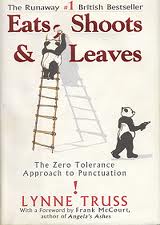
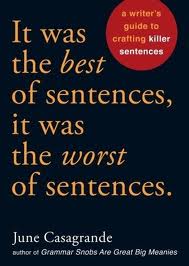
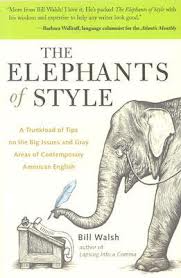
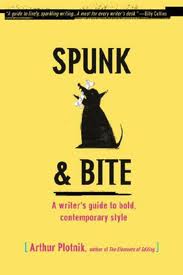

I have received endearments and yes, shared the love. They're kind of like smiley stickers on a school paper --cute but meaningless. I'm guessing they aren't a make-or-break deal for potential employers.
Oh. That doesn't sound right. If you don't know the person is qualified for that skill, you shouldn't endorse them. I've been endorsed for skills I know I don't posses.
I admit, in the beginning I too felt lost on how to use this feature. My view now is that the endorsement tool is fine but should be used properly. After all, this is LinkedIn not Facebook.
The nice thing about Endorsements is that people can support you without waiting for you to ask for a Recommendation. I have endorsed several people with whose work I was familiar but with whom I had not directly worked. Yes, I did receive an Endorsement for a skill I felt was not one of my strengths--I sent a short thank you but did not upload the Endorsement to my page.
I don't think it is necessary to exchange an endorsement with every person who sends one. If you feel the endorsement fits simply accept the compliment and perhaps send a quick thank you if you feel you should.
Thanks for being brave and bringing up this topic for discussion.
What will LinkIn do when this feature is overwhelmed with "likes"?
Yes, I find it "weird" too...and meaningless...Oh well..just another sidetrack on the way to where we're going...
I'm with you, Cathy. I've only been endorsing people that I know their skills. Otherwise, I click SKIP!
This has been bothering me too, Cath! I only endorse people I've worked with--both in the endorsement feature and in written recommendations. I've had people endorse me that I've never done business with, and I don't understand why they're doing it, other than to have their profile show up on my profile or possibly receive an endorsement back. But Robyn brings up a good point that I didn't think about...it sounds like you can remove an endorsement. I will look into that and see if I can remove the ones I haven't worked with.
In the beginning, you were only supposed to connect with people you actually worked with. What a concept! But over the years it's turned into another social networking site. That's unfortunate; we don't need another Facebook.
Another thing that irks me is people who ask for a written recommendation from me when I've never worked with them. This happens every week and it always bums me out! Also, people seem to think I don't need an endorsement back. :(
OK, rant over, but you did ask! ;)
Angela's comment triggered a thought about something else that has bothered me (since we're ranting :)...the two and three tier network requests. It's one thing to be able to view a connection's network when one is searching for, let's say...a children's book editor (or whatever). I figure that if they are on my connection's network they will most likely share a value system. On the other hand, I have people I don't know from Adam asking to be included on my network. I thought two and three tier people were supposed to request an introduction first. In any case, I'm not sure how to handle this situation when I don't know these people. I don't want to be rude, but sometimes I'm more comfortable having them on the tiers.
Is there an Ann Landers of LinkedIn in the house?
Hahahha! Robyn, I know exactly what you mean! I get invitations to connect with the strangest people (and by strange, I mean folks who are complete strangers, third tier or so).
I haven't found LI to be very helpful for me, writing-wise. I keep a profile so that I have a professional presence on the web. But I've found more people connect with me to SELL rather than to seek out my services.
But my niche is humor rather than business/technical writing (where I think LI might be more beneficial). Having said that, I will accept an invitation if a person is in the writing field, whether I know the person or not. But I don't accept invites from other professionals--there's just no point, to me.
And I appreciate y'all weighing in on the endorsement topic. Sounds like we all had the same issues with this feature!
I agree with Angela about LinkedIn turning into another Facebook. I've had several endorsements with people I have had only a passing interaction with, and some with whom I've not done any business. I also am getting requests to connect with people I don't know or have even a third-hand connection with. I guess I'm just popular right? No, don't answer that! Anyway, thanks for this post. It lets me know I'm not the only one in a quandary about this endorsement feature.
I have received a couple of endorsements from people that I'm not sure has even read my work. At first I thought it was pretty cool and it boosted my ego a bit. Then I thought about it and one of the endorsements I received, there was no way that person had any connection to the work. Oh well...it still feels a little good.
Yup, I've been wondering "what the heck are these endorsements about and why should I care?" Yes, I've gotten some from writer colleagues but I agree with you that LinkedIN is certainly more business oriented. Since I really don't do much at all with LinkedIN, other than keep a profile, I decided to be an equal opportunity curmugeon and not endorse anyone. So writer friends, if you endorsed me, don't be offended, I'm ignoring everyone's endorsement!